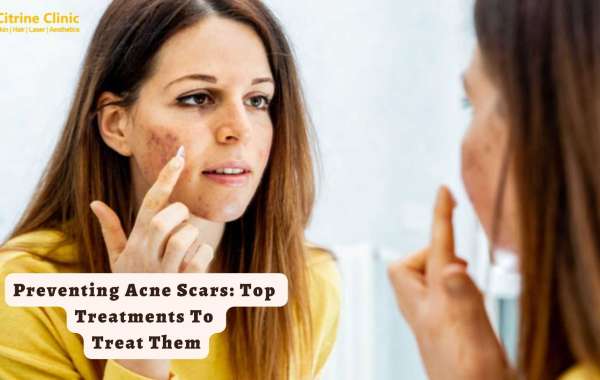Although it is common, it is unquestionably not "normal." One may experience acne for a variety of reasons, including hormonal changes, stress, and other long-term medical conditions. Therefore, it's crucial to identify the origin of acne. Because it leaves behind stubborn acne scars if it is not treated on time. Acne can become severe and leave scars if repeatedly poked or ignored. They develop because the innermost layer of the skin doesn't heal properly, which deforms collagen and leaves a depression in the skin. Unless treated with a scientific method, they can sometimes last a lifetime.
This blog provides significant insights offered by Dr. Niti Gaur, a renowned dermatologist known for providing excellent acne scar treatment in Gurgaon at her prestigious skin clinic, Citrine Clinic. Continue reading to learn more about acne scars and their associated issues.
Best Treatment for Acne Scars
They are as follows:
- Subcision
Atrophic acne scars can be treated with a minor surgical procedure called subcision. The procedure involves inserting a tri-beveled hypodermic needle beneath the skin's surface into the acne scar and using its sharp edges to skillfully or delicately move under the defect to make subcuticular cuts. It is done to separate the fibrous threads holding the acne scars from the subcutaneous tissue beneath. With this method of treatment, the connective tissue that forms during the natural healing process of wounds is removed along with the depressed acne scars.
- Chemical Peel
A chemical peel involves the use of acids or other special chemicals to exfoliate the skin, removing the top layer of damaged, aging skin to reveal the younger-looking, clearer skin beneath that has fewer scars. Chemical peels come in three varieties: mild/superficial, medium, and deep, which differ in the potency of the applied acid and the depth of penetration. Glycolic acid, salicylic acid, resorcinol, Jessner's solution, and trichloroacetic acid are the chemical peels that are most frequently used to treat acne scars.
- Dermal Fillers
Several depressed or atrophic acne scars can be safely and effectively filled in with soft tissue fillers like hyaluronic acid, autologous fat, or other collagen-stimulating fillers like polymethylmethacrylate, poly-L-lactic acid, silicon, and polyacrylamide. Most fillers give temporary results that last between 6 and 18 months, but some are semi-permanent and even permanent. The patient might need to repeat the treatment after a few months, depending on the filler that was used. Polyacrylamide and silicon might never require replacement.
- Laser Skin Resurfacing
In this procedure, thermal energy is delivered to the scarred collagen beneath the skin by ablative or non-ablative lasers to resurface the skin. The method relies on the body's response to wound healing to increase the production of healthy collagen and promote the development of new, healthy skin to cover acne scars. The texture and appearance of raised acne scars are reduced by using this method.
Carbon dioxide lasers, erbium YAG lasers, and pulsed dye lasers are a few standard lasers that can be used to treat acne scars.
To get rid of acne scars, one can schedule a consultation with Dr. Niti Gaur, the best dermatologist in Gurgaon at Citrine Clinic to take advantage of these treatments. Visit her clinic today and get scar-free skin!










